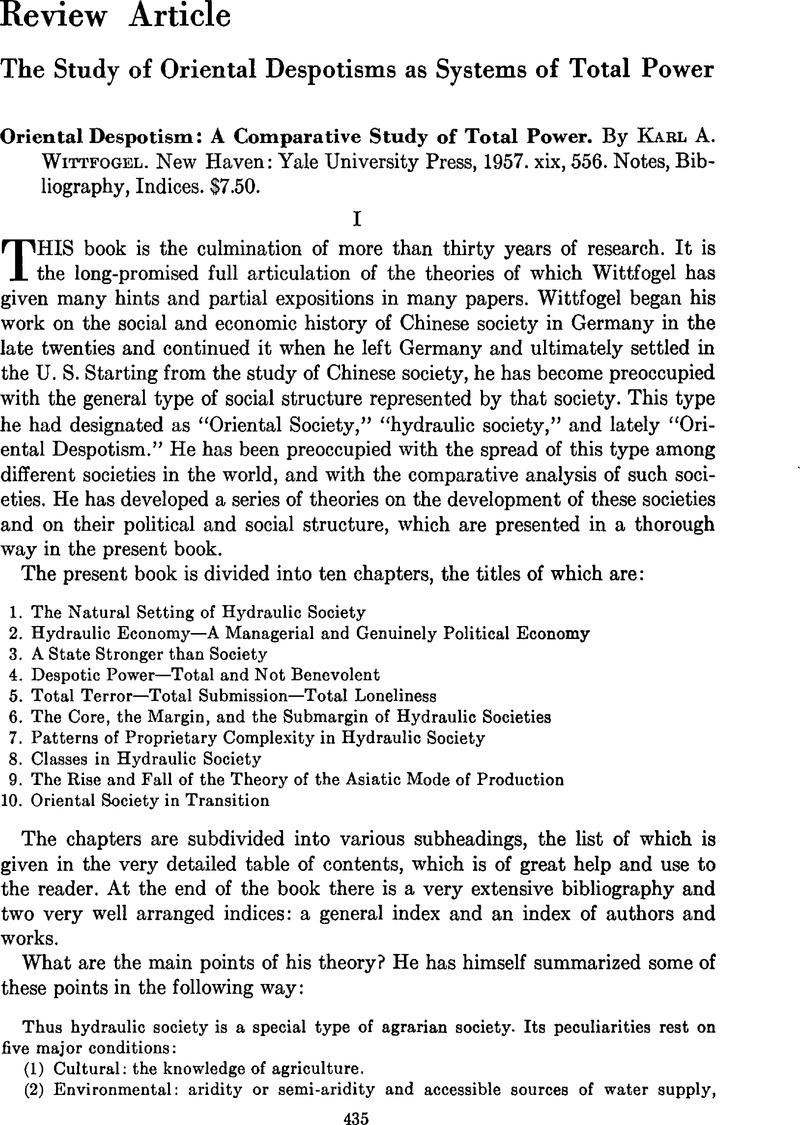Published online by Cambridge University Press: 23 March 2011

1 This summary is taken from , Wittfogel, “Chinese Society: An Historical Survey,” JAS, XVI (May 1957), 344Google Scholar.
2 According to Wittfogel, the political system of the Chou period in China was not feudal but “hydraulic.”
3 See for many criticisms of this aspect of his theories the symposium on “Irrigation Civilizations—A Comparative Study,” Pan American Union, Soc. Sci. Monographs (Washington, D. C, 1955), especially the papers of Beals and Steward.
4 See, for example, Wright, A. F., “The Economic Role of Buddhism in China,” JAS, XVI (May 1957), 408–414CrossRefGoogle Scholar, which summarizes the important work of J. Gernet. See also Wright's other works on Chinese Buddhism.
5 It is interesting to note here that although we canfindin the bibliography Wellhausen's “Arab Kingdom,” his celebrated essay on the religious oppositionary groups is missing. No mention is made of Lewis' researches on Ismailism or his general interpretation of Arab history or Cahen's work on Muslim cities. Similar selectivity can sometimes be found in bibliographies on other countries and on theoretical topics.